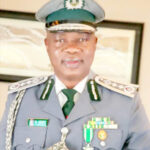The surest way to making him happy is to be serious about your studies. During my secondary school days, whenever I showed him my result, he would encourage me to put more efforts, especially in mathematics.
Mallam didn’t get to receive receive western education at his early age because of the fear by parents then that their kids may be converted to Christianity. It didn’t help matters too that most schools were owned by Christian missionaries.
But Malam did not relent. His quest for knowledge was to later take him to the famous School for Arabic Studies (SAS) in Kano. After passing out, he wanted to proceed to the Abdullahi Bayero College, now Bayero University Kano (BUK). He was, however, denied admission by a white man “for not having enough background in western education.” This is in spite of the fact that Malam sat for and passed the entrance examination into the college.
He was heartbroken for his inability to advance to the tertiary level. He later found solace in the words of late Sheikh Abubakar Gumi who advised him to continue seeking for knowledge in whatever way he could and that one day graduates would seat before him to seek for knowledge. How true! Malam truly saw what Sheikh Gumi told him come to pass.
I remember reading a piece written by Malam on western education in Nothern Nigeria entitled “Islam and Muslims in Nothern Nigeria.” He stated in that piece that it is not Islam that people don’t understand but how to live under Islam. He said “when the westerners brought their education to us, which were originally from us, we thought that whosoever followed them will go astray. Instead of doing that, we should look carefully at it. Where it has advantages we adopt it, where it has diasdvantages we leave it. We can review it to suit our religion and culture. But we forgot to do that untill when things became difficult for us. The Prophet (pbuh) said that, “wisdom is the lost property of the believer, and that let him seize it wherever he finds it.”
Malam continued his search for knowledge until the day he died. Most times, when he travelled to Gwandu in Kebbi State, he always searched for books written by Sheikh Abdullahi bin Fodiyo (Abdullahin Gwandu). And there was a particular book that Malam searched for over 50 years ‘Tafsiratul Hukkami’. He heard about the book from the late Emir of Zazzau Malam Ja’afaru dan Isyaku because of a judgement passed by one Malam Lawal who was a Qadi then in Zaria. He could however not lay his hands on the book until in 2003 when the present Emir of Birnin Gwari sent him the book after coming across it in Umrah. When Malam took possession of the book, he spent most of the day going through it. He later described the book as something more tasteful to him than meat. Malam loved books and guarded them jealously. Somehow he had a way of finding out when his books are tampered with, let alone removed from where they originally were.
Malam lived an exemplary life. He was so generous, compassionate and always contented. What I always remember about Malam is his selflessness and simplicity. He was always accessible to people irrespective of class or status and at whatever time of the day. Malam was ever grateful to Allah for making him a teacher all his life. He was a good man and great father. He knew no retirement throughout his life and did his best to give my siblings and me a good education.
He was very contented with the little he had. After his death, I read one of the interviews he granted to Gaskiya Tafi Kwabo. In the interview, he said that when he was admitted into School for Arabic Studies Kano, there was one particular Sallah day when they woke up in the morning but had nothing to eat on that day. He said they did not get to eat on that day until around 4pm when his father in-law brought food for them. When his friend later learned about it, he was bitter.
There was also a time one of his classmates at SAS Kano invited him to go and greet Sheikh Gumi, who was a teacher in the school. That was the day that Malam first met Sheikh Gumi in his life as a student there in 1959. That marked the beginning of their relationship until September 11, 1992 when death separated them. Malam and Sheikh Gumi lived a good cordial relation as teacher and student, and they respected each other that one cannot easily identify the teacher from the student.
Malam spent the most productive parts of his life in the pursuit of knowledge and passing it on as said by the Prophet (SAW). He taught Arabic/Islamic Religious Knowledge (IRK) at the Government College Kaduna in the 70s. For almost 42 years, Malam presented a weekly sermon (Wa’azin Musulunci) and other Islamic programes on radio and television, in addition to the mosque. Such programmes as still being aired on Radio Nigeria Kaduna and some other stations (May Almighty Allah accept this as sadaqatul jariyah).
He once said that his ambition in life was to seek for knowledge so that others will benefit. As Almighty Allah will have it, he fulfilled this ambition. Mallam died on Monday, May 24, 2004 around 5:15pm in Kaduna. Malam, whom I still find impossible to address in the past, died on left behind four wives, 30 children (two – Haula and Mansur – have died after him), and many grand children. May Allah have mercy on him and grant him Al-Jannatul Firdausi.
Hussain is a student at the Usman Danfodio University Sokoto.
 Join Daily Trust WhatsApp Community For Quick Access To News and Happenings Around You.
Join Daily Trust WhatsApp Community For Quick Access To News and Happenings Around You.


